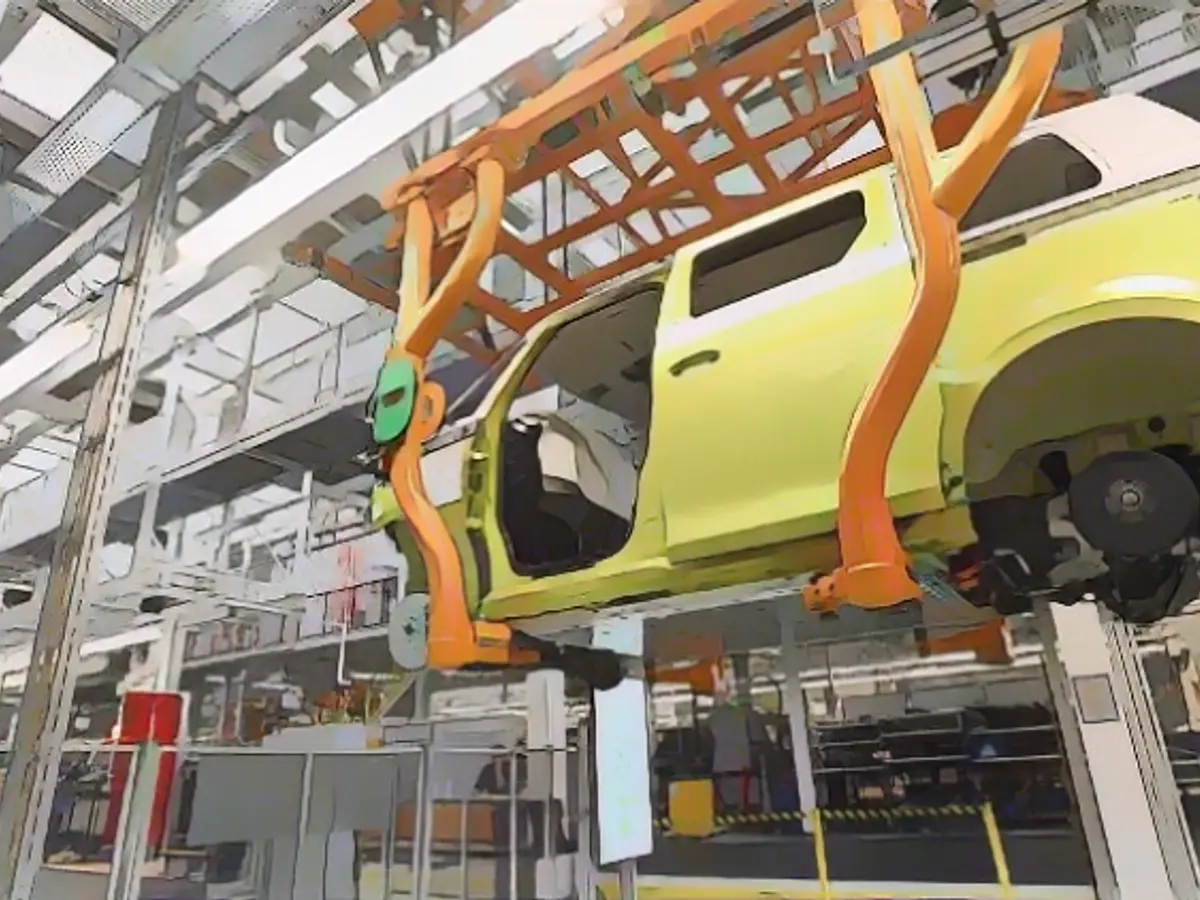Struggles with Budget Crisis Impact Car Manufacturers
The tight purse strings of the German government, as a result of budget pressures following a court ruling, is causing unease at an automotive summit in the Chancellery. This is due to the climate and transformation fund, intended to finance industrial policy measures, being on the brink. The automotive sector is worried about falling further behind in the e-mobility race.
Business and government representatives stood united at the Auto Summit in the Chancellery, expressing a shared ambition to quickly reach the target of 15 million fully electric cars on Germany's roads by 2030 as stated by government spokesperson Steffen Hebestreit. However, the meeting's momentum was dampened by the looming budget crisis which arose from the Federal Constitutional Court's ruling on the Climate and Transformation Fund (KTF).
Government representatives welcomed plans to boost the development of semiconductor and battery production capacities. Nevertheless, several of the coalition government's industrial policy plans, such as subsidies for energy-intensive companies and financial incentives for battery and chip manufacturers, are in jeopardy due to the KTF ruling.
The Gathering at the Chancellery
Chancellor Olaf Scholz hosted a summit at the Chancellery, inviting car industry associations, domestic and foreign car manufacturers, automotive suppliers, and representatives from other industries including battery cell producers and semiconductor manufacturers. The primary objective was to discuss the expansion of e-mobility, focusing on the production of more affordable electric vehicles. Ministers from the departments of economics, labor, transport, environment, and finance attended the meeting on behalf of the government.
Electric Vehicle Obstacles
Volkswagen Group CEO Oliver Blume foreshadowed the failure of the German government's electric vehicle targets, citing a slower ramp-up of electromobility than previously anticipated due to factors such as higher electricity prices, expired purchase incentives, and a lack of charging stations.
Hildegard Müller, the president of the German Association of the Automotive Industry (VDA), echoed Blume's concerns, pointing to the primary issues being the lack of charging infrastructure and high electricity prices. Moreover, she emphasized that the production and supply of vehicles would not pose a bottleneck to achieving the coalition's e-mobility goals.
Encouraging Tax Reforms and Infrastructure Development
Marie-Luise Wolff, the president of the German Association of Energy and Water Industries (BDEW), called for significant reforms to the tax and subsidy system to make clean mobility accessible to a broader audience. The environmental organization BUND advocated for halting subsidies for large, heavy, and energy-intensive vehicles, and suggested reforming company car taxation and vehicle tax toward a system that taxes high-horsepower combustion engines more heavily.
Volker Wissing, the Federal Minister of Transport, acknowledged the rapid development of charging infrastructure, with around 100,000 publicly accessible charging points currently in operation in Germany, a doubling in number from just two years ago. He placed the responsibility for funding and maintaining the infrastructure on the car manufacturers.
With the German government's goal of having 15 million fully electric cars on the roads by 2030 under threat by budget constraints and industrial policy initiatives, potential solutions include aggressive industrial policy, incentivizing EV adoption, and expanding charging infrastructure to address the challenges of market competition, demand, and pricing issues, and regulations.








